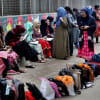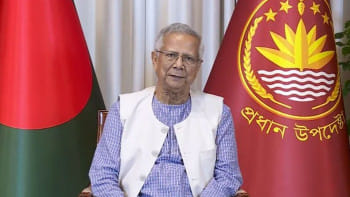Without good teachers, any education reform agenda is futile

One of the critical issues of education reform policy agendas is reducing graduate unemployment in Bangladesh. So far, numerous write-ups have been published through various outlets reflecting the state of unemployment, and expressing concerns about the existing education system. The central message is that our education system, for higher education in particular, fails to prepare graduates with the soft and hard skills necessary to make them employable. Moreover, in our society, it seems that becoming employed is the main purpose of acquiring an education
In Bangladesh, many education reform initiatives are underway at various levels with this goal in sight. At the government level and in universities, the focus is on enhanced opportunities for technical and vocational education. Some exemplary initiatives include the founding of technical and vocational education centres across the country at the upazila levels, and the National University launching skills-focused diploma programmes.
It would not be an exaggeration to state that the main purpose of education should be to create an educated society and a civilised nation, rather than producing graduates for the job market. As for higher education, the vision of an education institution should be to create knowledge, advance existing knowledge, and promote innovation.
But how can we reach a reality of all our graduates being employable in their respective fields, in Bangladesh or abroad?
On June 19, 1999, the Joint Declaration of the European Ministers of Education (or, the Bologna Declaration) was signed. The education ministers of the 29 signatory European countries decided on the three priorities of higher education, with the main goal being the achievement of higher education equality across Europe. Another priority was fostering employability, that is, building the skills of a graduate to make them employable in their area of interest. They did not focus exclusively on employability, though. But with the specific priorities in focus, the European countries reformed their education systems, curricula, and degrees, which ultimately resulted in increased opportunities of graduate employment thanks to increased inter-country mobility of graduates. As the quality of education was at par across the Bologna Declaration member countries, the graduates of one country did not experience difficulty finding employment in another country. In short, the reform initiative broadened the horizon of graduate employment opportunities.
During British rule, formal education was introduced in India to educate the citizens of this region, and higher education was established to create an elite class who would be educated as per Western standards of education and would serve the British rulers in delivering public service across India. After the end of the British rule, the British system of higher education was the norm, wherein access to higher education was extremely limited. However, the elite nature of higher education did not persevere.
Once Bangladesh gained independence in 1971, the country replicated the British system of higher education but introduced higher education opportunities for the masses, and new colleges and universities were founded.

Consequently, the massification of higher education took place across the country that resulted in a huge supply of university graduates. The supply was much higher than what the job market demanded, though. And the inevitable outcome of the mismatch was a persistent rise of graduate unemployment. Despite having the required skills, many graduates were unable to get employment. And over the years, because of accumulated pressure, graduate unemployment has become one of our foremost economic problems.
The solution to this problem lies in generating more opportunities for the employment of our graduates – at home and abroad.
This is why an employment-focused reform initiative for education is erroneous. The reform agenda must cover raising the standard of education and improving the reputation of institutions, so that our graduates are universally fit for employment.
However, raising the quality of education does come at a cost. Sufficient investment is required for education at the government and private levels. And, of course, investment must be made in making the teaching profession attractive to the best and brightest graduates by enhancing the social status and financial packages associated with the post. Only higher spending by the government is unlikely to guarantee quality education. The secret to quality education for a nation is employing good teachers in the first place.
Md Shamsul Arifeen Khan Mamun, PhD is a professor of economics at Gurudayal Government College in Kishoreganj, Bangladesh. Email: [email protected]; [email protected]

 For all latest news, follow The Daily Star's Google News channel.
For all latest news, follow The Daily Star's Google News channel. 










Comments